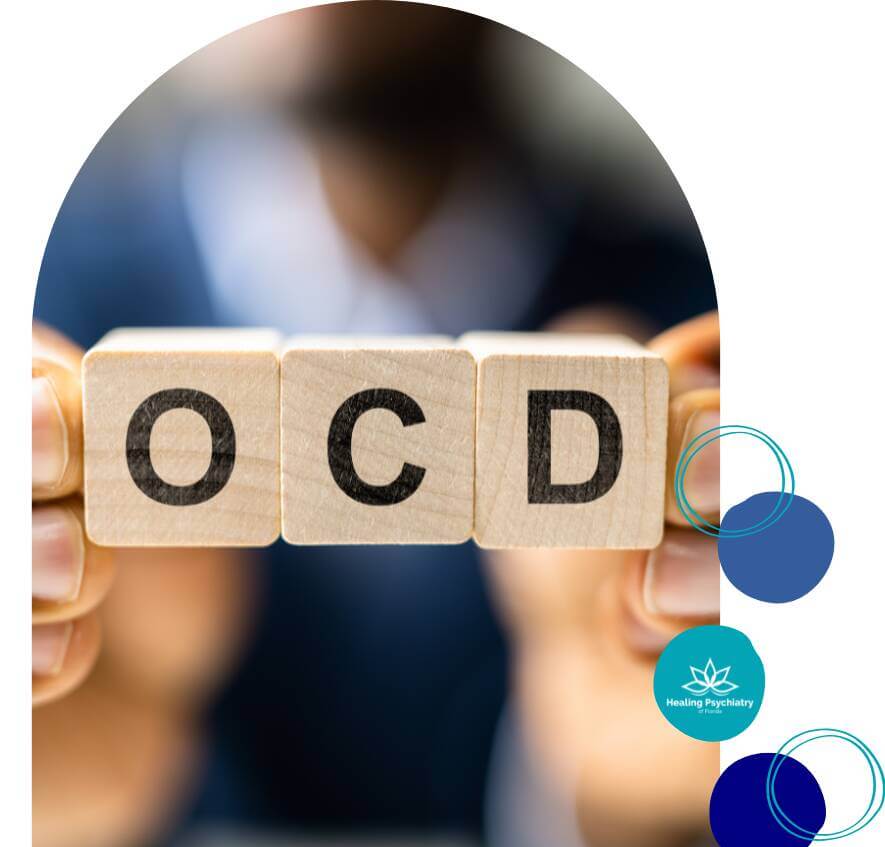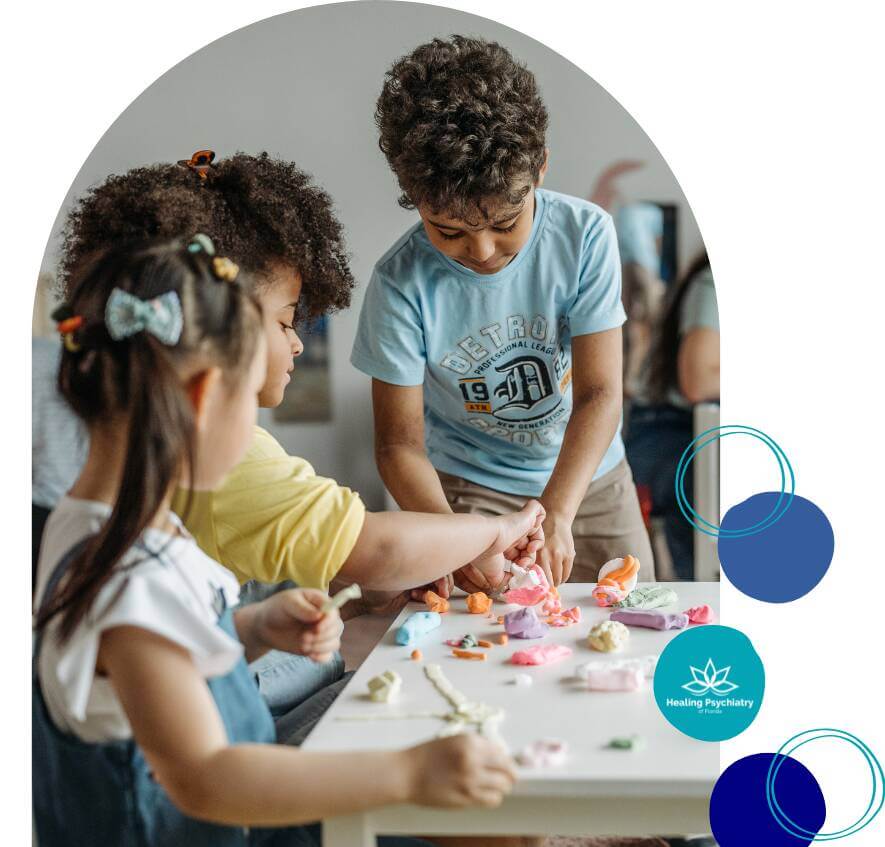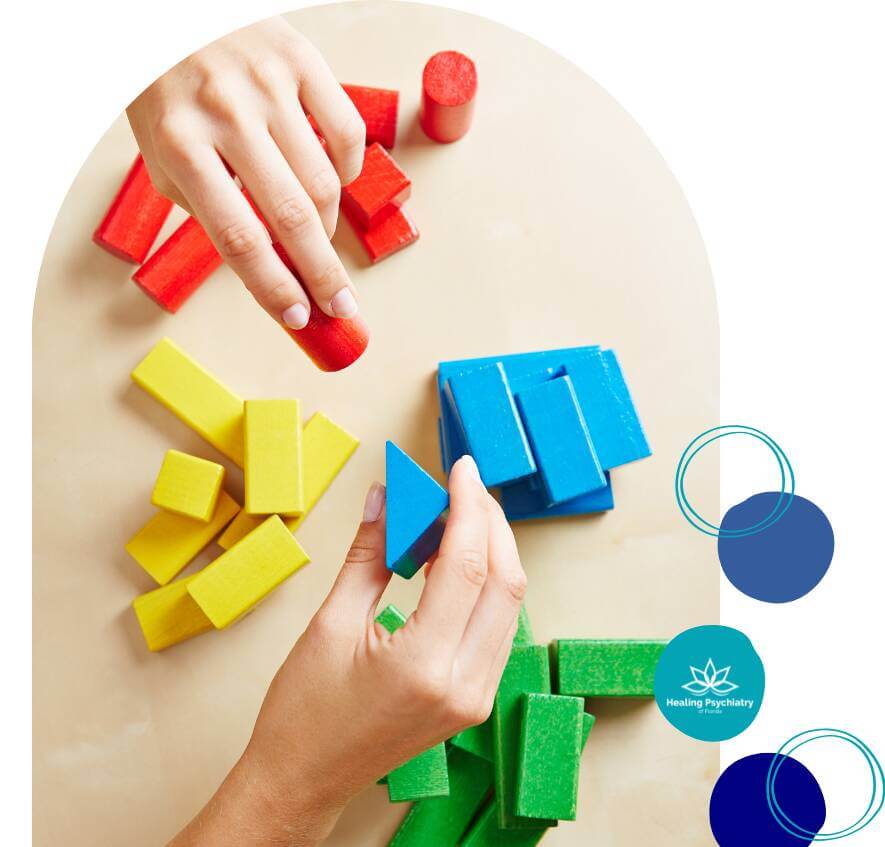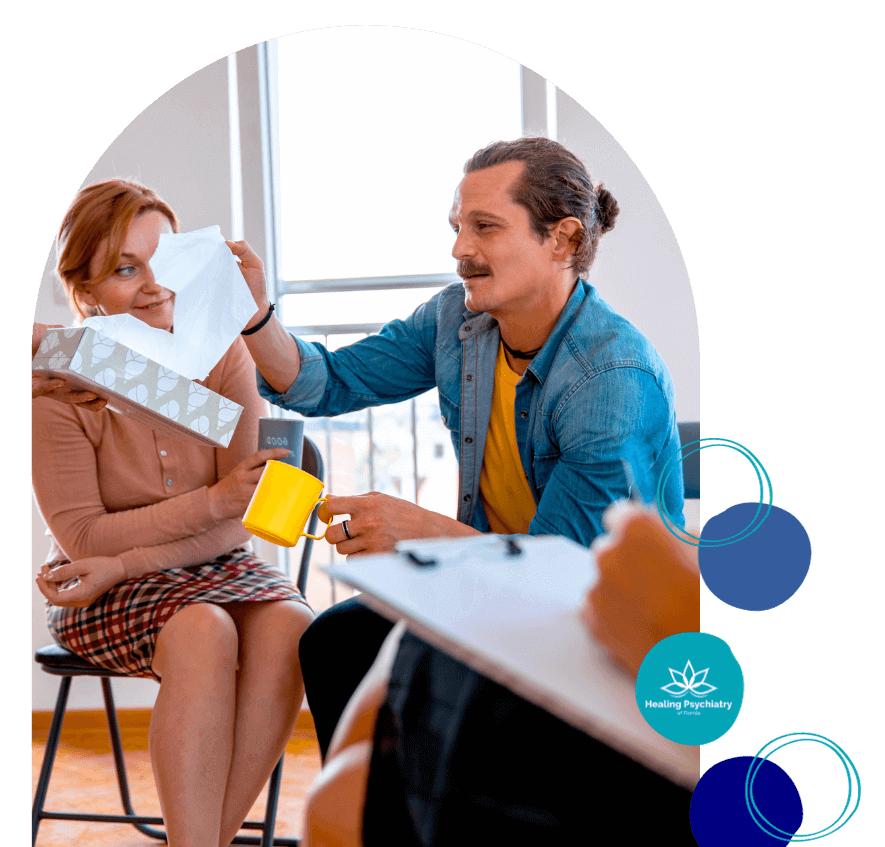Children’s Therapy for OCD
Obsessive-compulsive disorder (OCD) in children shows up in ways that are easy to miss at first: excessive fears about getting sick, checking locks, needing things to be “just right,” or avoiding school routines. In today’s world—where moral pressure, identity confusion, and nonstop digital input are heightened—these patterns intensify quickly.
The good news? OCD is highly treatable, especially when addressed early. With the right approach, kids can learn to manage intrusive thoughts, reduce anxiety, and build lasting coping skills.
Worried about what you’re seeing in your child? Early intervention leads to better outcomes.

Start Your Session Today
How OCD Can Show Up in Children
Obsessive-compulsive disorder rarely has one clear cause. In children, it often arises from a combination of neurological wiring, genetic vulnerability, and environmental or psychological stressors. For some, symptoms build gradually; for others, they seem to appear overnight. No matter the path, OCD is a mental health condition that can be treated, especially when it’s understood early. Knowing what might be driving your child’s symptoms is the first step in guiding them toward the right care.
When It Starts in the Brain
Some children are more biologically sensitive to OCD symptoms due to differences in how their brains process fear, control, and uncertainty. OCD has been linked to imbalanced serotonin levels, altered communication in the brain’s feedback loops, and even autoimmune responses in rare cases like PANDAS (following a strep infection). If your child’s symptoms appeared suddenly, especially after an illness, we may consider neurological screening and referral to a child psychiatrist.
A mental health evaluation helps clarify whether these patterns are part of OCD, another anxiety disorder, or something else entirely. When OCD is neurologically driven, behavioral therapy still works, often in collaboration with your child’s healthcare provider.
Think your child’s symptoms may have a neurological root? Our team can help assess for sudden onset, autoimmune links, or other medical drivers of OCD.
Insurances Accepted










See what others are saying about Healing Psychiatry of Florida
Meet Our Children’s Therapy Team
Our licensed therapists specialize in helping children with challenges like OCD, anxiety, and emotional dysregulation. Using evidence-based methods like exposure and response prevention (ERP), we tailor therapy to each child’s age, learning style, and developmental needs.
We focus on real-world progress—helping kids build confidence, reduce obsessive behaviors, and reconnect with relationships, routines, and a sense of calm. Therapy is engaging and personalized to each child.
Parents and caregivers are involved from the start, receiving strategies and guidance to support their child’s progress at home, school, and in daily routines.




Emotions and Environment Shape Behavior
For other children, OCD emerges in response to emotional strain or unpredictable environments. Major changes, family conflict, pressure to perform, or even strict interpretations of personal religious beliefs can heighten a child’s need for control or certainty. In these cases, obsessive thoughts often focus on fears of doing something wrong, harming others, or violating moral rules—even when there’s no real threat.
Parents sometimes notice rituals forming around school routines, hygiene, or homework—seemingly small actions repeated until “it feels right.” These are ways children attempt to manage invisible stress. Family therapy and behaviorally-based strategies can help untangle these connections in a way that builds long-term emotional resilience.
When Personality and Development Play a Role
Some children are temperamentally more anxious, perfectionistic, or prone to internalizing stress. These traits don’t cause OCD, but they can shape how symptoms develop and how children cope. Kids who seem cautious, rigid, or hyper-responsible may develop compulsive behaviors to gain a sense of control over an overwhelming world.
If OCD runs in the family history, or if your child tends to be hard on themselves, it’s important to understand how these patterns interact. Therapy helps children separate who they are from what OCD tells them they have to do—and gives them tools to build flexibility, self-trust, and healthier ways to manage discomfort.


Therapy That Supports the Whole Family
OCD affects more than the child—it reshapes routines, school life, and relationships at home. That’s why we involve parents and caregivers from the beginning. You’ll learn how to recognize OCD-driven patterns, respond effectively to episodes, and reduce behaviors like reassurance-seeking that can unintentionally reinforce the cycle.
For some families, we also offer family therapy to support communication and shared strategies. When needed, we coordinate care with your child’s school, doctor, or other providers to create a plan that’s consistent across settings. The result? A therapy process that supports not just symptoms, but your child’s real-world growth.
Children’s Therapy for OCD FAQs
Can therapy still help if my child doesn’t talk much about their thoughts?
Yes. Many preschool children and even school-aged children struggle to put their experiences into words, especially when obsessive thoughts are involved. Our therapists are trained to support kids who communicate through behavior, play, or patterns rather than conversation. We help children externalize their recurring thoughts and begin to relate to them in new, healthier ways—without forcing verbal disclosures before they’re ready.
How can I tell if OCD is affecting how my child sees themselves?
One subtle but important sign is when a child begins to define themselves by their rituals or fears, believing “something’s wrong with me” or “I’m not normal.” If your child identifies more with the disorder than with their abilities or personality, therapy can help. We work to separate the OCD from the child’s identity, building a clearer sense of self and stronger internal confidence.
Can OCD symptoms be triggered or reinforced by family dynamics?
Is it common for kids with OCD to also feel anxious in other areas?
Very much so. OCD doesn’t exist in a vacuum. Kids feel anxious about performance, relationships, routines, and sometimes even the anxiety itself. We assess for broader anxiety disorders and emotional regulation challenges, and we tailor the therapy plan to address overlapping stressors that may make OCD harder to manage.
Can OCD be treated fully, or will my child always struggle with it?
OCD-treated children tend to experience fewer disruptions in school, relationships, and daily routines, especially when therapy begins early. While some symptoms may persist, most kids improve significantly with the right support and maintain those gains over time.
When is medication part of OCD treatment for children?
We start with therapy, especially exposure and response prevention. If symptoms are severe or persistent, our in-house child psychiatrists may recommend selective serotonin reuptake inhibitors (SSRIs) as part of a tailored treatment plan.
Contact us
For more information about our systems and services, contact Healing Psychiatry of Florida.
Healing Psychiatry of Florida
108 W Citrus St, Altamonte Springs, FL 32714
help@healingpsychiatryflorida.com
Opening Hours
Monday – Thursday: 8AM – 7PM
Friday: 8AM – 5PM
Saturday: 9AM – 2PM
Sunday: Closed
OCD Therapy Altamonte Springs, FL
